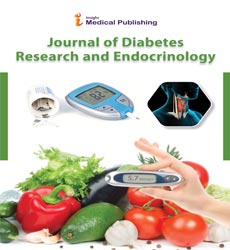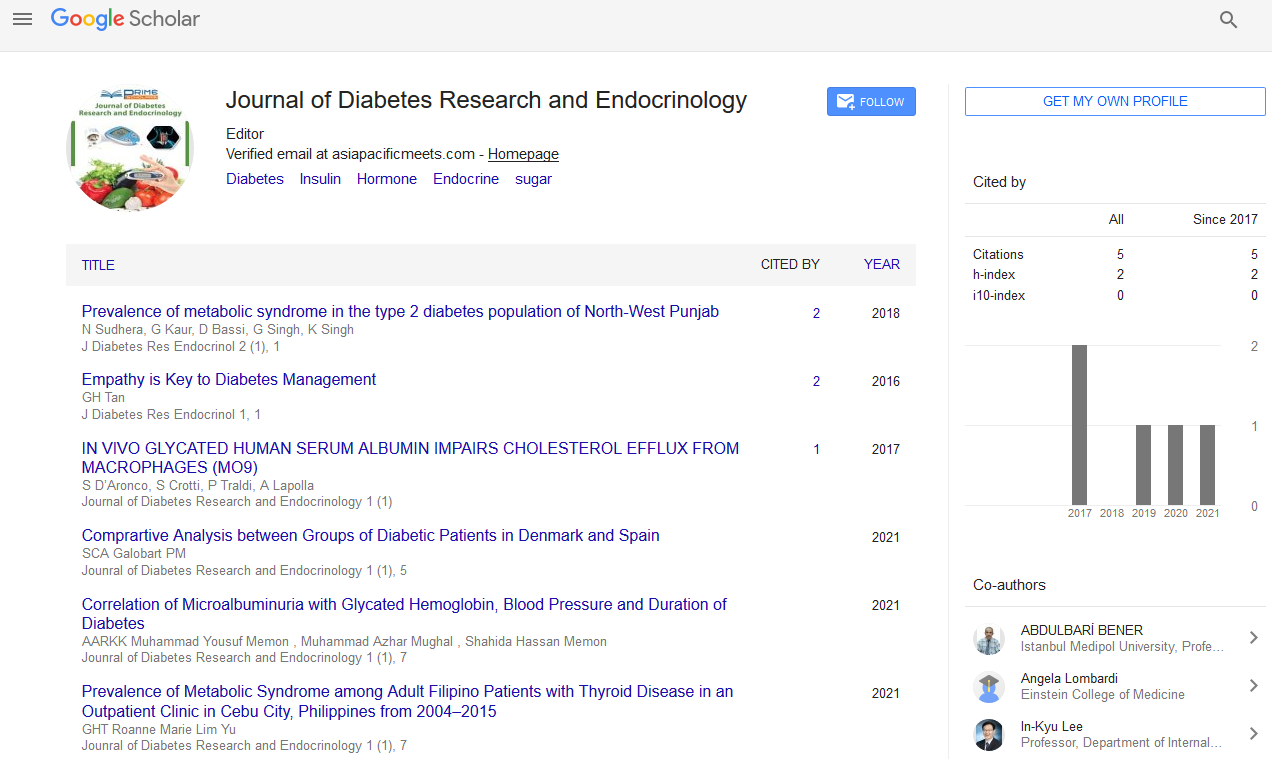Gerry H Tan*
Cebu Doctors’ University, College of Medicine, Philippines.
*Corresponding Author:
Gerry H Tan
Cebu Doctors’ University
College of Medicine
Philippines.
Tel: 032-412-4803
Email: docgerrytan@alumni.mayo.edu
Received date: October 12, 2016; Accepted date: October 14, 2016; Published date: October 21, 2016
Citation: Tan GH. Empathy is Key to Diabetes Management. J Diabetes Res Endocrinol.2016, 1:1.
Tight control of blood sugar is an advocacy for all patients to prevent complications. Data from the DCCT and UKPDS provided us overwhelming information regarding the benefits of good glycemic control [1, 2]. But epidemiologic data in different parts of the world show disappointing real world results regarding poor control among diabetic patients in spite of recent advances in technology, new information on management and new medications available.
I believe it’s about time that we go back to basics.
Examine the way you handle your patients. One has to realize that a patient sees us because he or she is sick. As healers, we are there to provide comfort. Through the art of talking, listening and caring, we should provide the best healing environment to them. But sadly these days, these are all gone and the art of medicine is becoming extinct. In fact in a recent survey of 800 recently hospitalized patients, it was shown that only around 50 percent of the patients felt that their physicians were empathic and caring [3].
The art of medicine is not only getting the right diagnosis but more so in helping patients feel comforted and loved. As physicians, we should impart the sense of responsibility to care and heal. It’s not about money or fame; it’s our Hippocratic Oath to serve to the best of our ability. And the best way to provide our patient the best therapy is have time to listen and empathized with them.
The news of a diagnosis of diabetes is overwhelming. The fear of complications of losing sight or dialysis is alarming. Allaying our patients’ fears and misconceptions can lead to a better compliance and adherence. Patients are given medications without understanding what they are for. Is it because physicians are so overwhelmed with patients and therefore less time to talk and explain?
I personally practice the art of medicine to the full extent. I teach this to my fellows and residents. Do you wonder why our patients have problems complying with medications and why the A1cs continue to be high? Focus not only on medications but make sure that the patient understands that the cornerstone of a good outcome lies on four basic principles: the right medication, a proper nutrition, daily exercise and proper lifestyle. And that three out of the four pillars of therapy rely heavily on the patient himself!
Unless the patient understands this concept of disease management that revolves not only on medication but around him, then control of blood sugar will continue to elude the best amongst us!
Let’s bring empathy back to the fold! It’s a global challenge for all!
References
- Nathan DM (2014) The diabetes control and complications trial/epidemiology of diabetes interventions and complications study at 30 years: Overview. Diabetes Care 37: 9-16.
- Holman RR (2008) 10 year follow-up of intensive glucose control in type 2 diabetes. N Engl J Med 359: 1577-1589.
- Lown BA (2011) An agenda for improving compassionate care: A survey shows about half of patients say such care is missing. Health Aff 30: 1772-1778.

